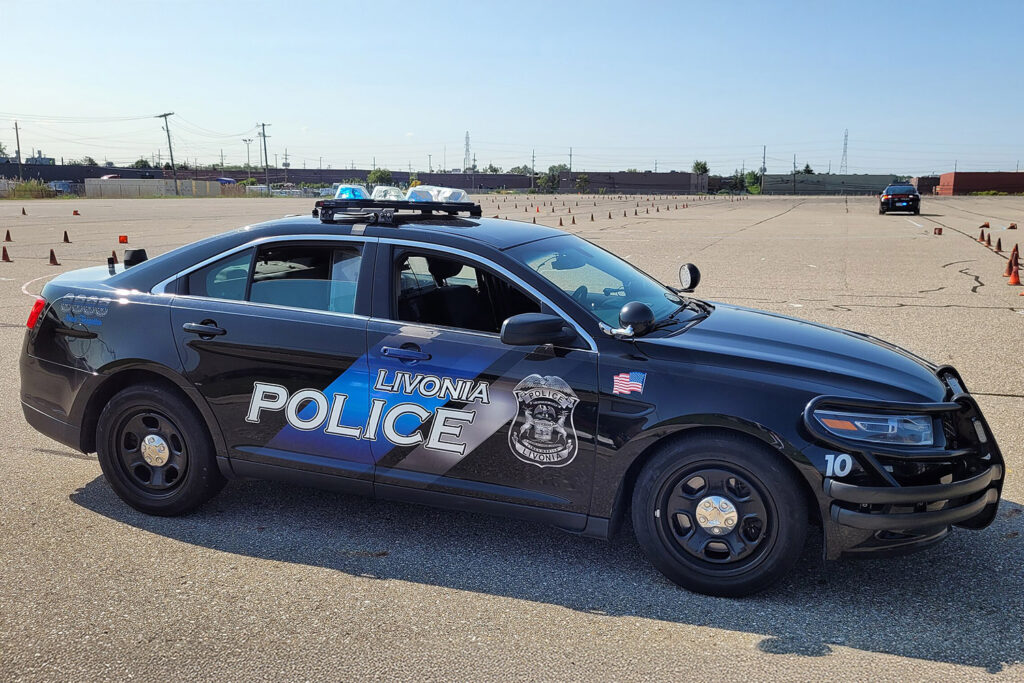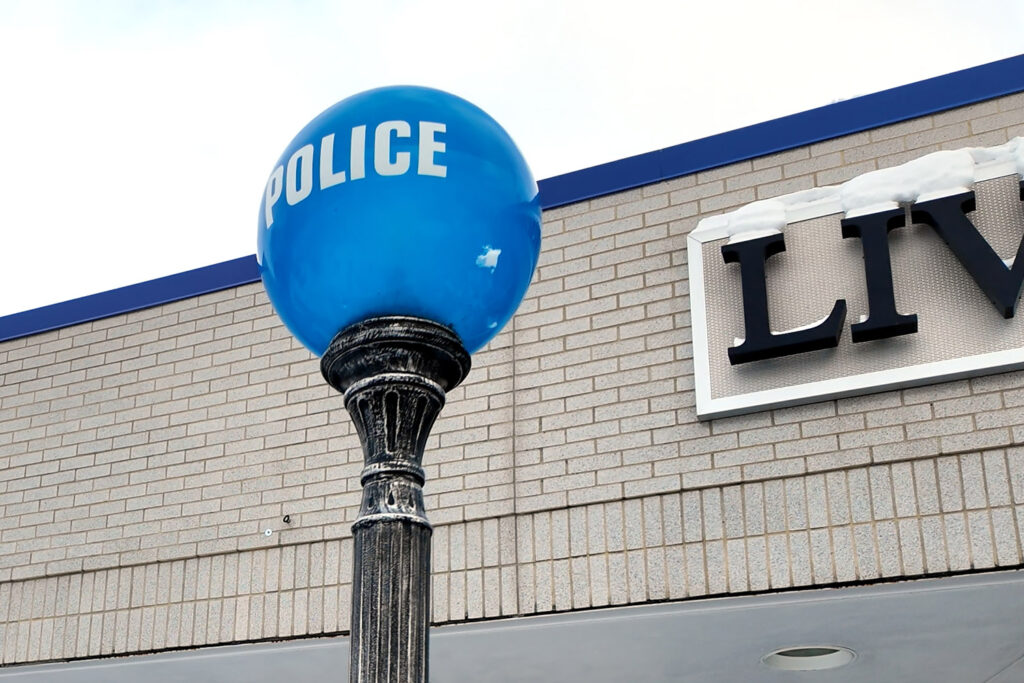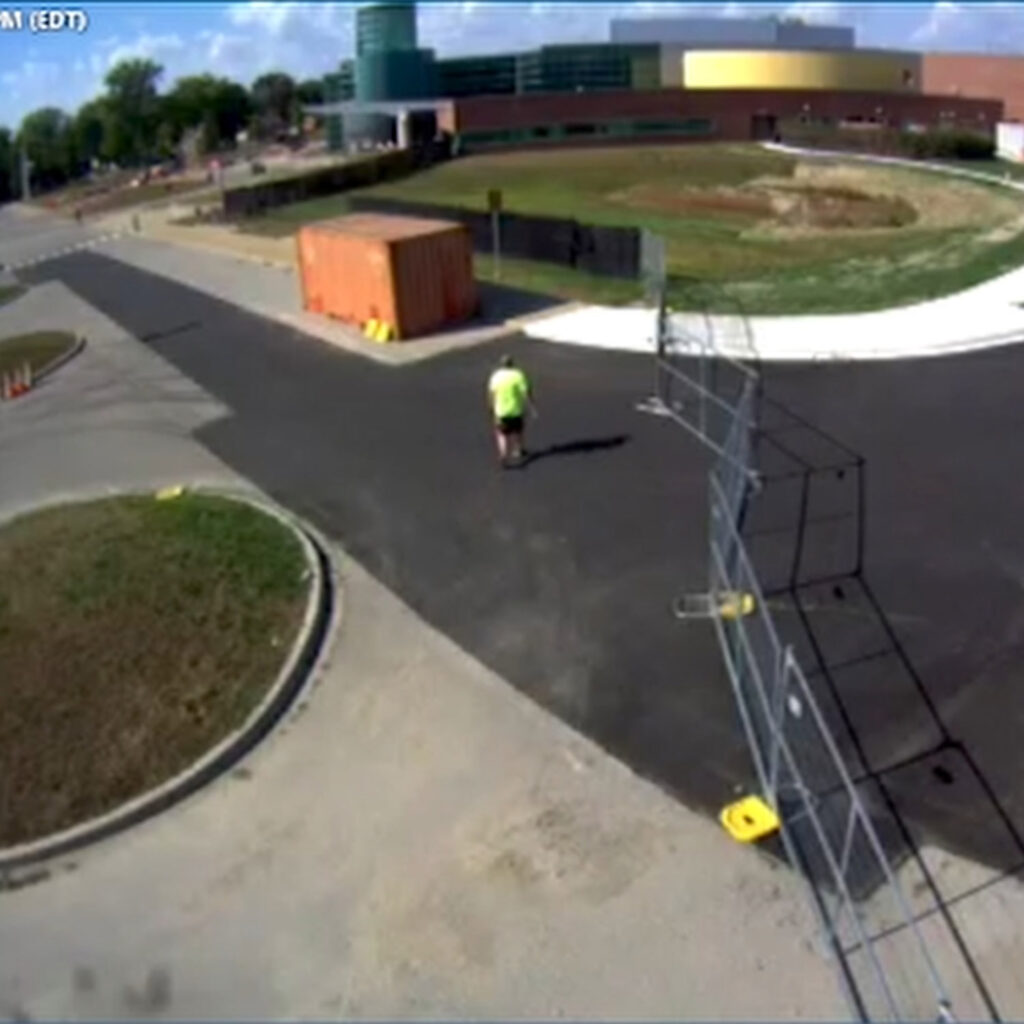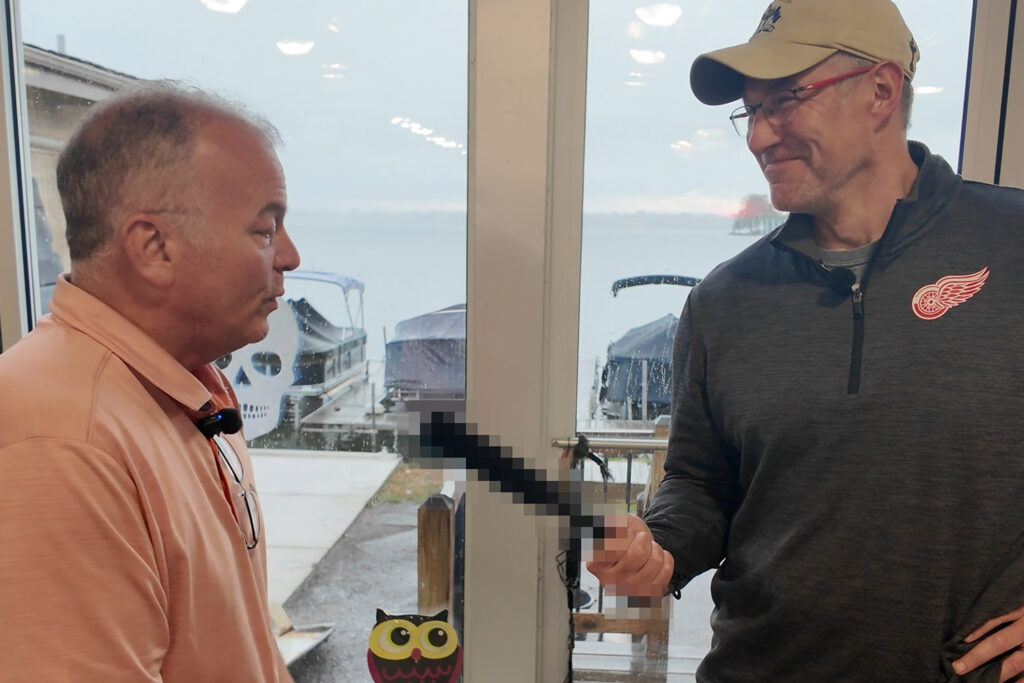Livonia — It’s not a closely guarded secret that local and state police are making fewer traffic stops on average than before the Summer of George Floyd. Livonia is known for its strict policing and aggressive traffic control, but those have ebbed. The result of fewer stops has been a decline in law and order.
The traffic stop is also known as a Terry stop—named after Terry v. Ohio, in which the U.S. Supreme Court set the standard for pretextual temporary detainment of an individual based on reasonable suspicion. A police officer can pull over a driver for a broken tail light and can question the driver, pat him down, and search his vehicle before mirandizing him under probable cause.
There are several tropes about traffic stops. It’s true that racial disparities exist within the data. Black drivers and drivers of color tend to get pulled over at a higher rate than whites.
But it’s true that local police have used traffic stops along major city streets to keep crime down by investigating possible criminal activity through profiling drivers for speeding, DUIs, and other reckless or suspicious behaviors.
Livonia was a social justice flex point for progressives during the summer of 2020. A local activist named Delisha Upshaw purchased advertising on a billboard along Telegraph Road, stating, “DRIVING WHILE BLACK? RACIAL PROFILING JUST AHEAD. WELCOME TO LIVONIA.”
Upshaw, according to reporting at the time, wanted to put a national spotlight on Livonia by claiming it is a traditionally racist city. She wanted to use a moment of national unrest to make her move against the city and police department on the issue of traffic stops. Her actions were so disruptive that even the progressive liberal mayor, Maureen Brosnan, was annoyed. Brosnan called it “counterproductive” and something that “does not advance the progress of diversity.”
But Brosnan and the chief of police at the time quickly bent the knee and did a listening tour to show they are committed to “doing better.” Traffic enforcement cratered and continues to be a rare sight here.
One could argue that this is a win for the residents of Livonia. Traffic enforcement is an annoying and unwelcome deviation for those with a lead foot, but this shift away from traffic stops also seems to track with a visible decline in quality of life. Livonia has a more chaotic vibe existing today on its fringes, though most residents have turned a blind eye to it.
Talking with residents and checking their temperature requires peeling back layers. Livonians are happy with their police and applaud their responsiveness and engagement.
But when I speak with residents off the record, I hear concerns about possible rises in property crime, frustration with perceived progressive prosecutors having a lack of interest in prosecuting theft or vandalism, and more specifically how individuals feel unsafe in the parking lots of businesses along Middlebelt Road.
A Livonia resident told me he avoids both Walmart’s along Middlebelt at Seven Mile and Plymouth because “the people and activity in those parking lots do not look safe.” Another resident told me he avoids the Costco at Middlebelt and Schoolcraft in favor of driving several miles out of the way to the Costco at Eight Mile and Haggerty because “it’s not ghetto.”
An indicator of a lack of safety and increase in theft is the Livonia police putting mobile surveillance cameras in the parking lots along Middlebelt Road, signaling to residents they are aware of the problem.
On the condition of anonymity, I spoke with police officers who provided a litany of reasons behind the decline in the traffic stops.
A police detective, asking not to be identified for fear of reprisal from city HR employees and superior officers, stated it’s an open secret that traffic police are hesitant to pull over black drivers out of fear of retaliation by progressive officials who are keen to shine their virtue in the media. Compounding this is a lack of adequate training in dealing with tense situations involving uncooperative drivers.
An undercover police officer working in Metro Detroit described the tension: “No white officer wants to pull over a black driver and invite a potential viral moment, and every city has at least one HR employee or city council member with the media on speed dial.”
When asked, both police officers had pessimistic perspectives on city support for police. One said, “Mayors, city councilpersons, and chiefs of police are all covering their asses and placating the emergent progressives. They all claim to support the police, but when the rubber hits the road, they throw you under the bus without a second of hesitation.”
The chilling effect on traffic enforcement stems from one single event in Michigan, according to both police officers I spoke with. The shooting of Patrick Lyoya by a Grand Rapids police officer on April 4, 2022.
Lyoya was driving a vehicle with improper plates, a revoked license, three active warrants, and had open intoxicants in the vehicle. Lyoya resisted arrest, attempted to flee on foot, and when caught, proceeded to fight with the officer for control over the officer’s taser. After refusing multiple requests to let go of the taser, Schurr shot Lyoya in the back of the head, killing him. Under heavy political pressure by Democrats, the Kent County prosecutor charged the officer with second-degree-murder.
In the wake of that event, the way the city prosecutor “threw [him] under the bus” and the way Democrat politicians statewide, including Attorney General Dana Nessel and Gov. Gretchen Whiter, cheered the charges signaled to police they were on their own.
I’ve spoken to sources inside Livonia City Hall who admit that the tension between keeping order, police reform, and placating the progressives is very real. Livonia’s mayor, a well-known liberal on social causes, has been open-minded to more progressive policing, but has also attempted to keep the progressives at arm’s length.
City officials I’ve spoken with have claimed crime in Livonia is under control and considerably lower today than it was 10 or 20 years ago. They also cite data indicating Livonia’s violent crime rate is considerably lower than the state average, and property crime is well below the national average.
Fair enough, but rosy optimism from elected or appointed city officials stands in contrast to the behavior of Livonia businesses.
Home Depot on Middlebelt and I-96 has placed power tools and yard equipment under lock and key due to a remarkable level of theft that’s taken place since 2020, according to a store employee.
Ace Hardware nearby recently locked down almost every item in the store, including shower heads. A store manager told me, “People come in and don’t even bother trying to be clever. They just take items off the shelves and walk out.” Though frustrated by the high degree of property theft, she laughed, “Is there a fencing market for stolen shower heads?”
The connective tissue between traffic enforcement and property crime is location. Home Depot and Ace Hardware are both located in close proximity to I-96, the main freeway cutting east and west through the city. According to crime-tracking data maps of Livonia, the high levels of property crime are the areas of Livonia in direct proximity to the interstate.
Livonia was known for decades for a handful of annoying and impossible-to-evade speed traps, if you weren’t a local resident keen to their locations. One of the more brilliantly covert traps was the traffic signal at Middlebelt Road and Puritan Road that was—according to my law enforcement sources—timed perfectly to capture drivers either speeding or attempting to run red lights. A Livonia police officer once remarked to me: “That trap is an ATM machine for the city. Guaranteed to work every single time”.
The last time I saw a police car using that trap was during Trump’s first term.
J.Z. Delorean is a writer for Michigan Enjoyer and has been a Metro Detroit-based professional investigator for 22 years. Follow him on X @Stainless31.



